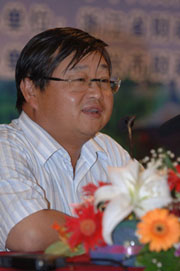Since March, the press has repeatedly asked Finance Ministry spokesman Hu Jinglin to comment on the 2008 state budget.
In an interview with China Newsweek, Hu said, "Letting people know how the state spends money will help them to exercise better supervision of the government."
Premier Wen Jiabao has in the past remarked that to ensure government money is used to serve the interests of the people, the public must know how it is being spent.
The draft 2008 central and local budgets were approved by the National People's Congress,

China's parliament, on March 18. Finance Ministry accounts for fiscal year 2008 project government revenue of 5848.6 billion yuan and government expenditure of 6078.6 billion yuan, of which the central government expenditure accounts for 3483.172 billion yuan.
The focus of the main budget measures is on improving the well-being of the people. Under the new rural medical care system, base funding will be raised from 50 yuan to 100 yuan per person per year over a two-year period. The cost of living allowance for the rural poor will rise from 30 yuan to 50 yuan per person per month. Urban students will be exempted from paying tuition and other miscellaneous fees for compulsory education. Cost of living allowances for urban residents will be doubled. Museums and memorial halls will be opened to the public free of charge. Poor people and students from poor families will receive additional allowances.
Local expenditures account for a major part of total government expenditure but since local spending policies differ widely, people are more concerned about how the 3400 billion yuan central government budget is spent.